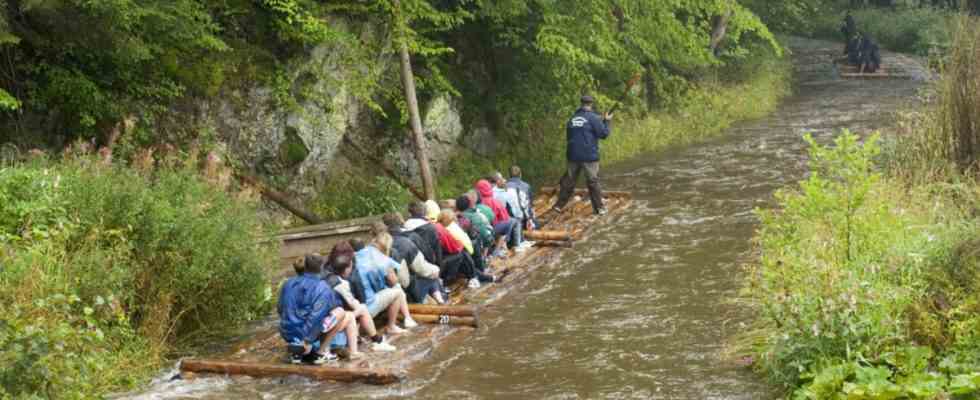For at least six centuries, raftsmen sailed through the Franconian Forest and shipped timber via the Main and Rhine to the Netherlands. It was first mentioned in a document in 1386. In the middle of the 20th century, the rafters stopped their work, and the wood was now easier to transport on rails and roads or on larger ships. And this year? Is the rafting qua appointment by Unesco intangible cultural heritage of mankind, tourist attraction in the Franconian Forest – and endangered.
As is so often the case, it’s about money, but only indirectly. Yes, that is also missing. Above all, because something else is missing: “The cause of the situation is the water shortage,” says Jens Korn, mayor of the Upper Franconian town of Wallenfels (Kronach district). Because of the dry summers in 2018, 2019 and 2022, only about half of the planned tourist raft trips on the Wilden Rodach could take place. In 2020 and 2021 the season was completely canceled due to the corona pandemic. The Wallenfels raftsmen’s community responsible for the trips has only been living on their financial reserves since 2018.
“The situation is life-threatening,” says Korn. And: “Rafting is part of the DNA here.” Because the raft trip is so important and the need is so great, Korn has sent a petition to the state parliament. The Tenor: Save the rafting!
He calls for the construction of a reservoir in which the raftsmen can drive. And the simplification of the water law rules on which rafting is based. “The rules have reached a level of complexity that can hardly be implemented,” Korn complained. Especially not for volunteers like the raftsmen, who already do a lot: “In the spring they build the rafts, they have to install the weirs, they take care of the transport. There is an incredible amount of work behind it. The raftsmen really like doing it because they – and these are really no Sunday sayings – feel indebted to their grandfathers,” says Korn. But at least the fixed costs have to be covered.
Despite the drought, more trips are needed for this. Which in turn requires the construction of a reservoir. Incidentally, the topic of reservoirs is nothing new. A building was examined as early as the 1980s. Since 2018, the Water Management Office has been conducting a feasibility study on the question of how flood protection and rafting in Wallenfels can be combined. So far, the construction of a reservoir is not foreseeable. This is no longer acceptable to Korn. “We’ve suffered a lot in recent years,” he says, adding that the uncertainty about their future is wearing the volunteers down. “After five years, something must finally happen,” he says. If that doesn’t happen, Franconia’s raftsmen could soon be left stranded. The region and all of Bavaria would lose such a cultural asset, says Korn. As mayor, he knows what that would mean for tourism in the city. But even more important is the preservation of the DNA. “Rafting is a part of us.”

